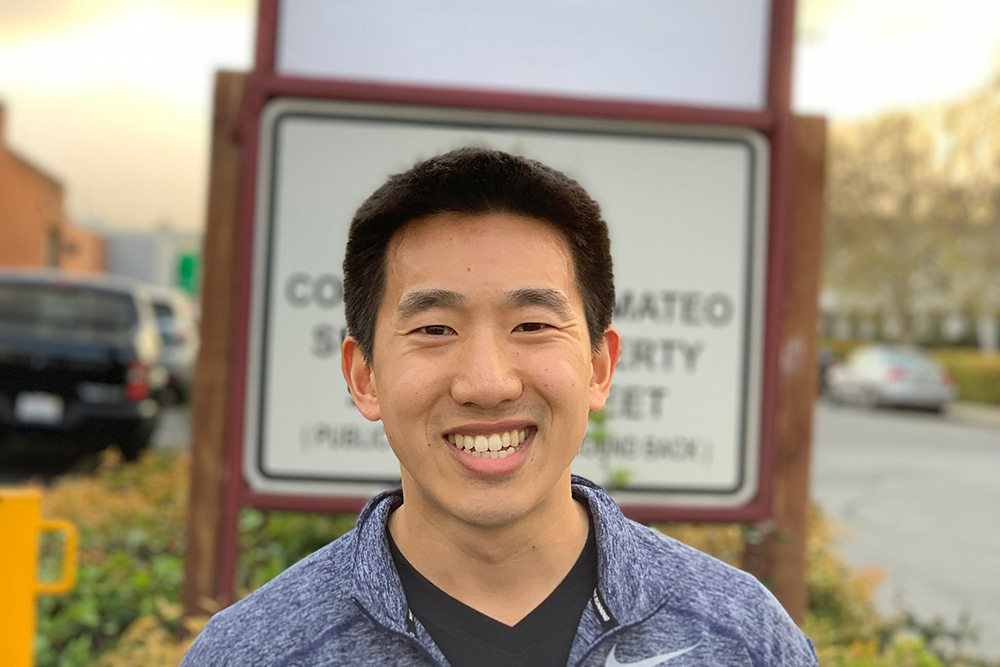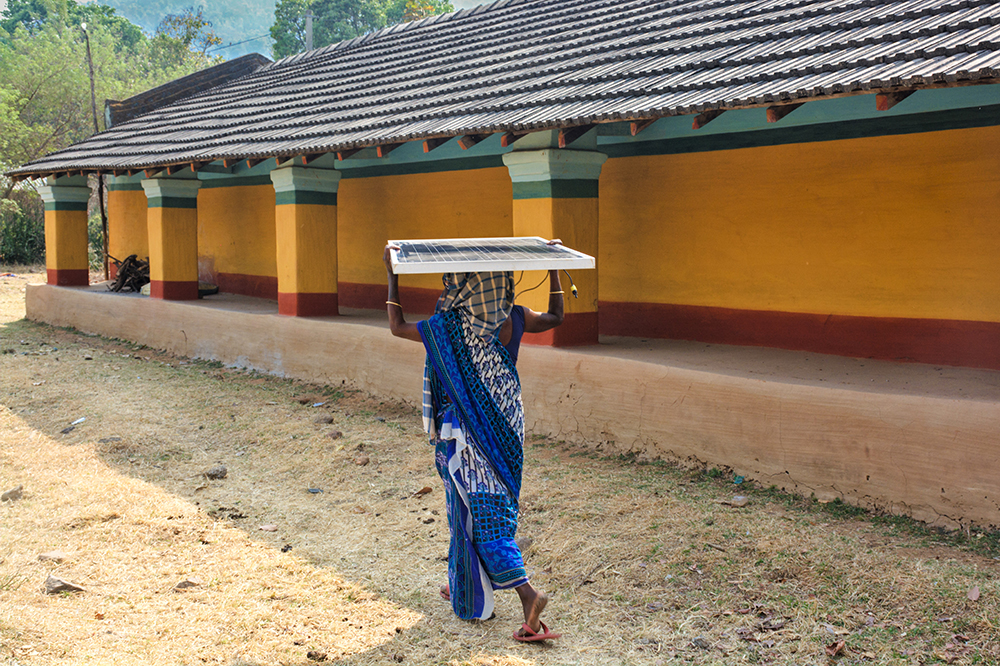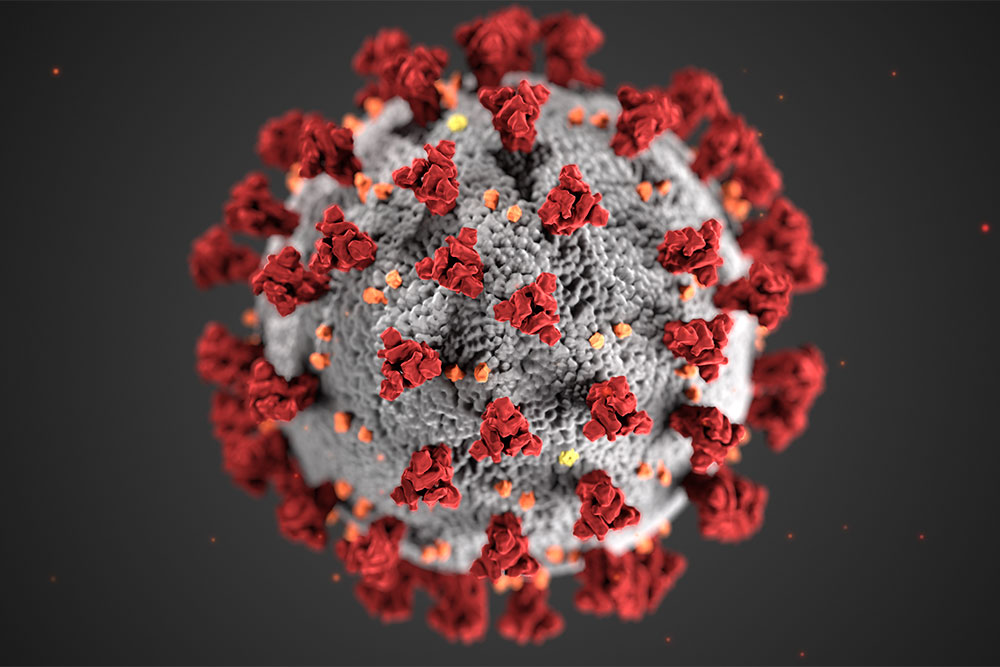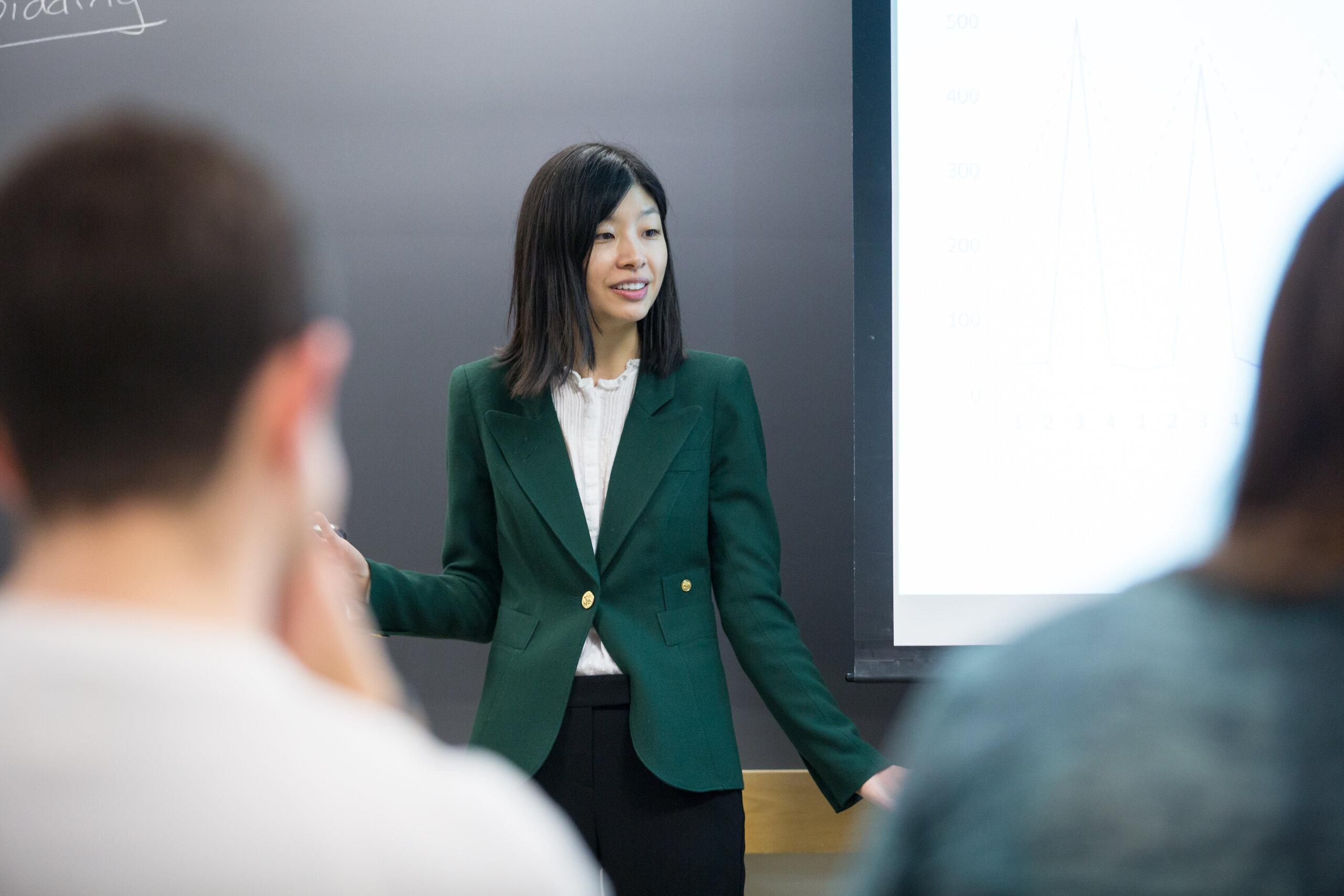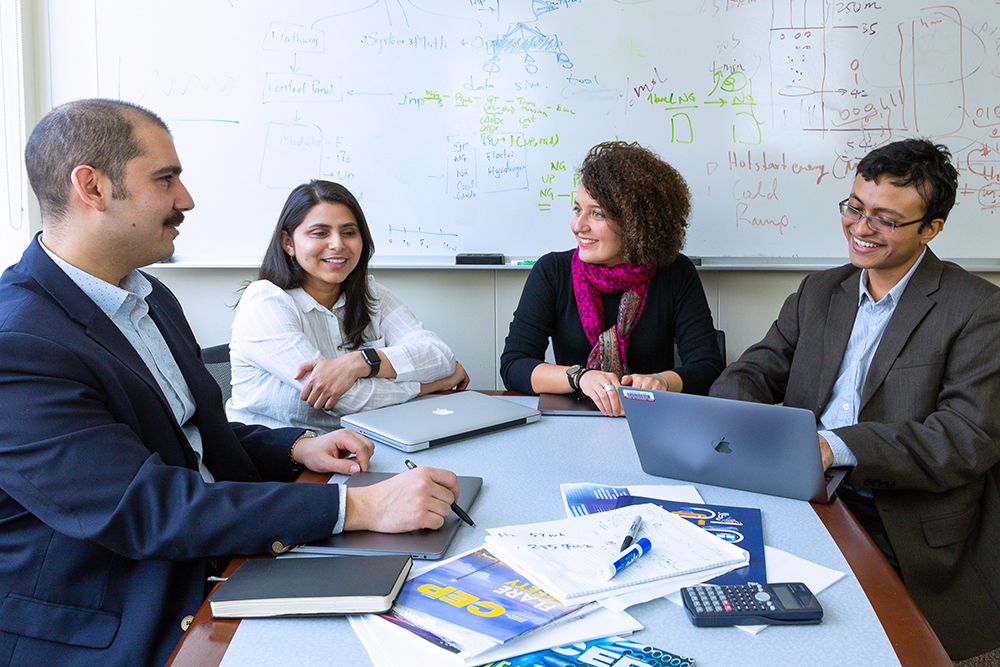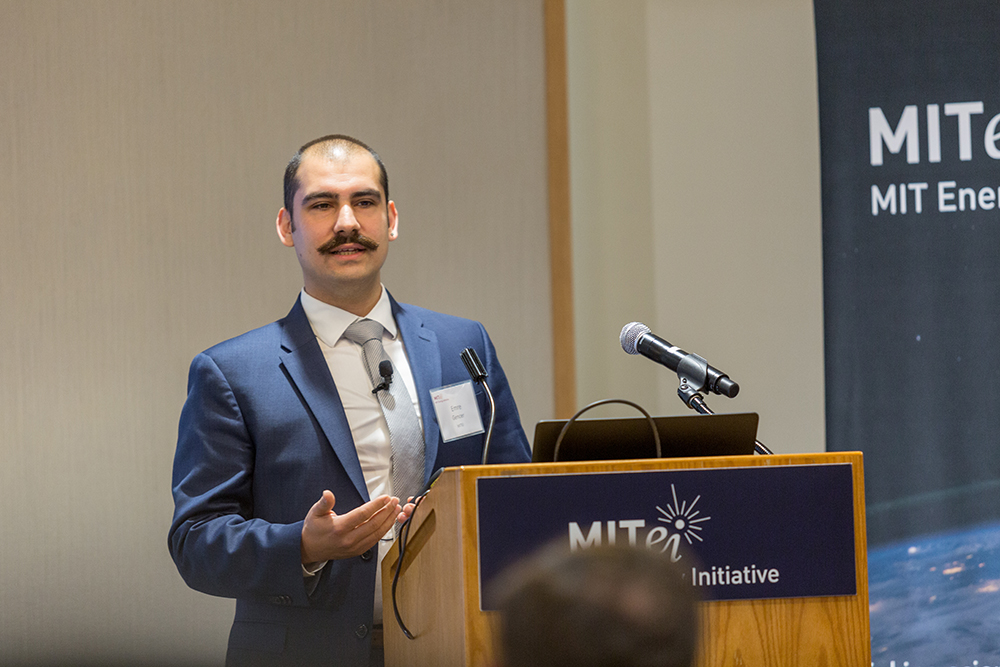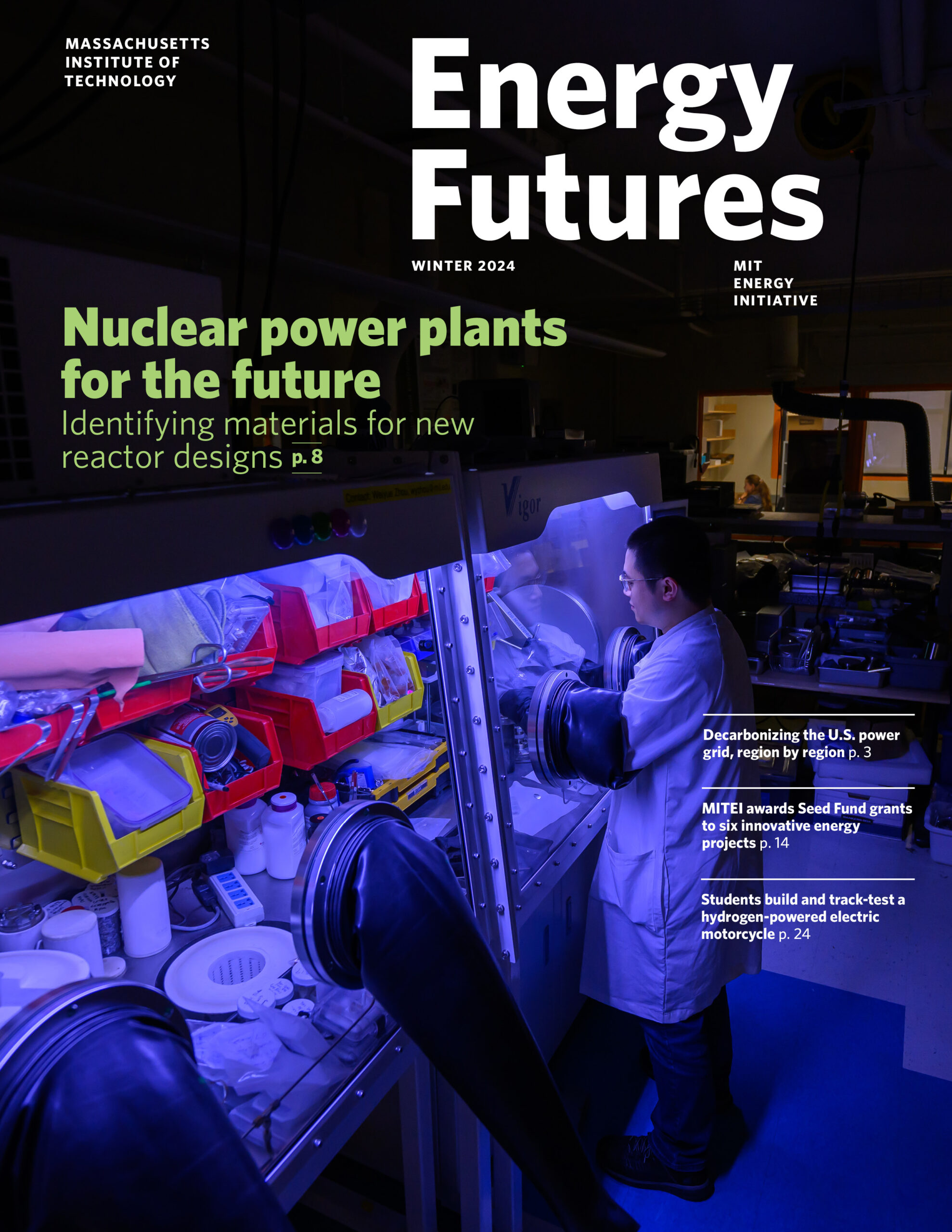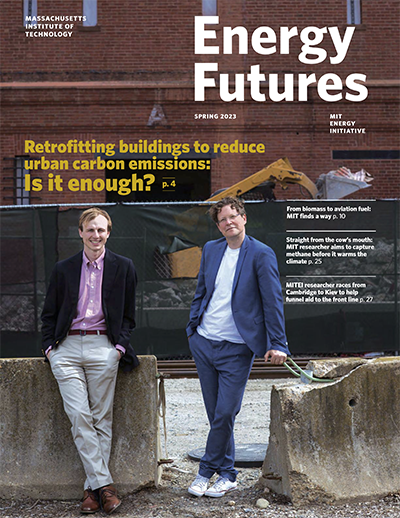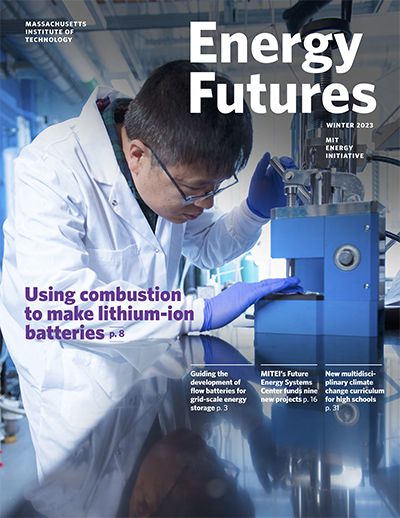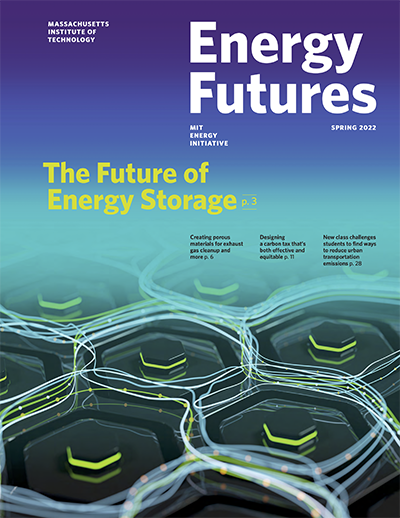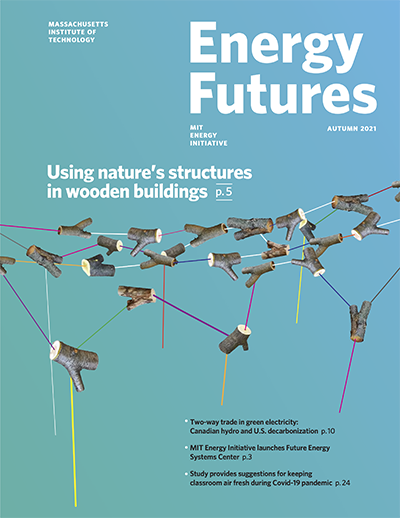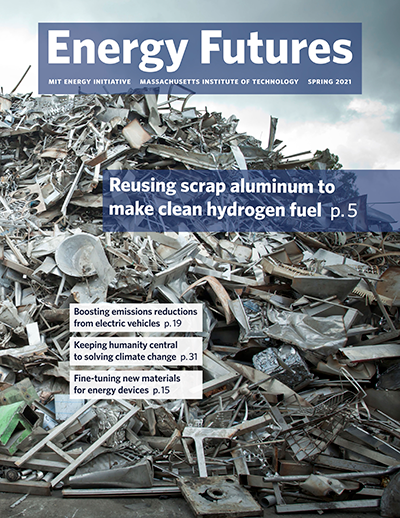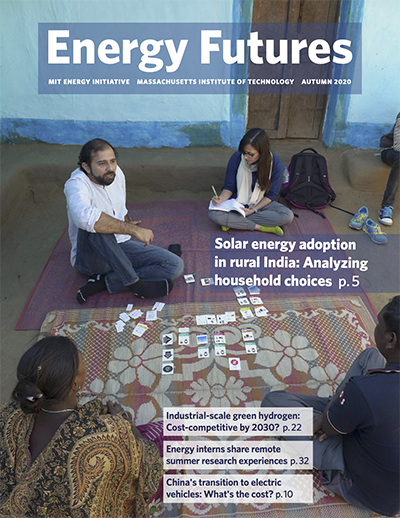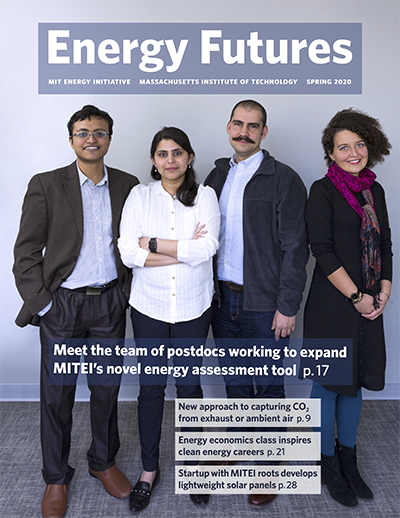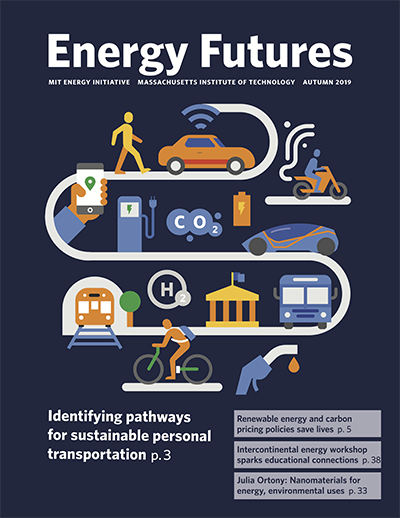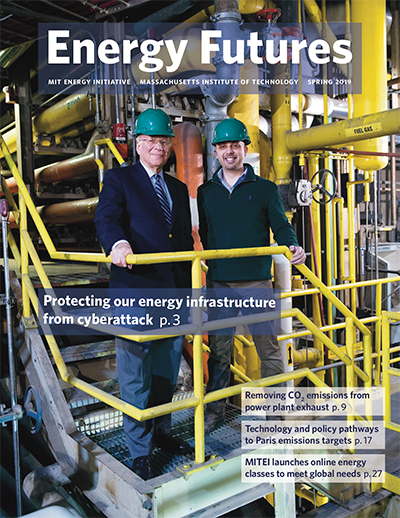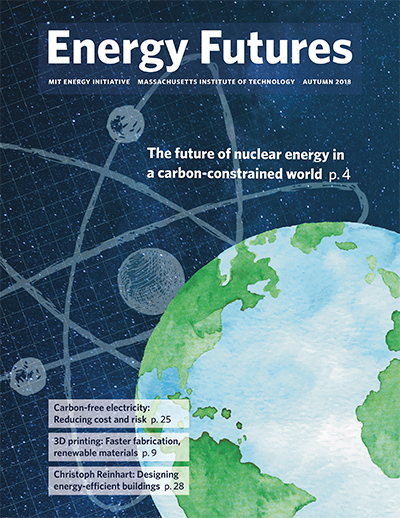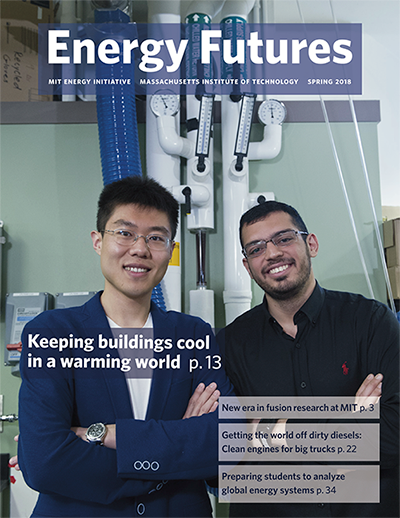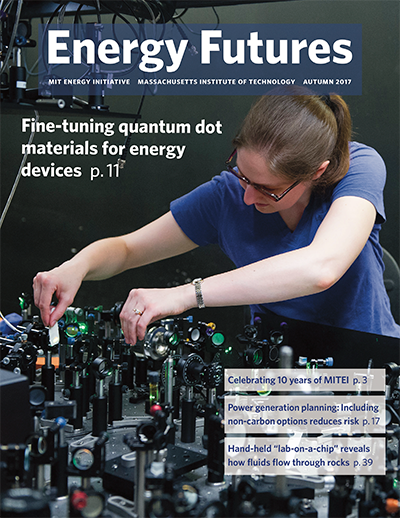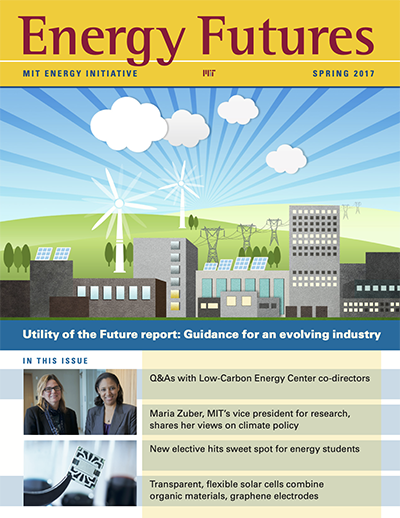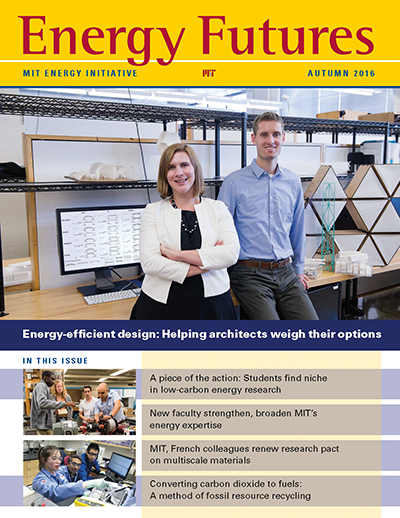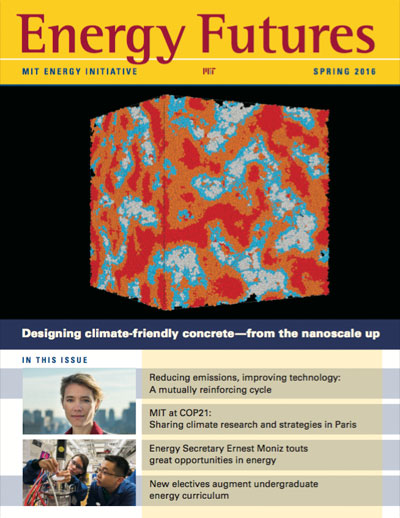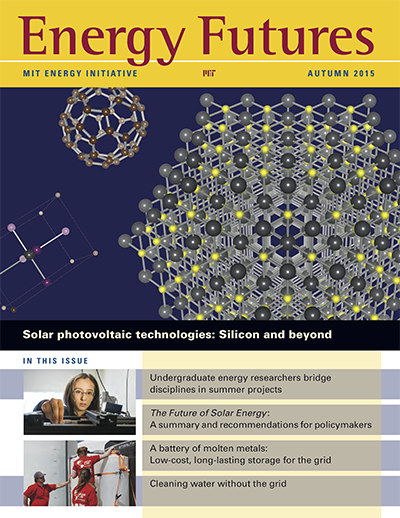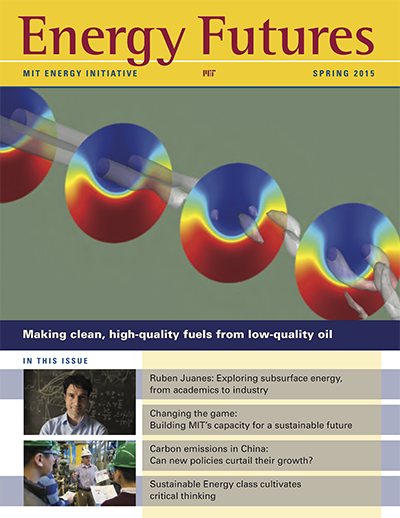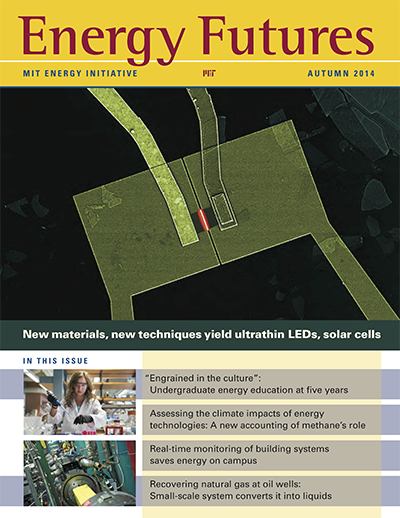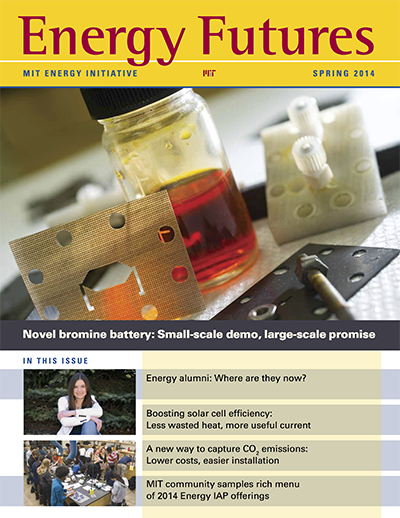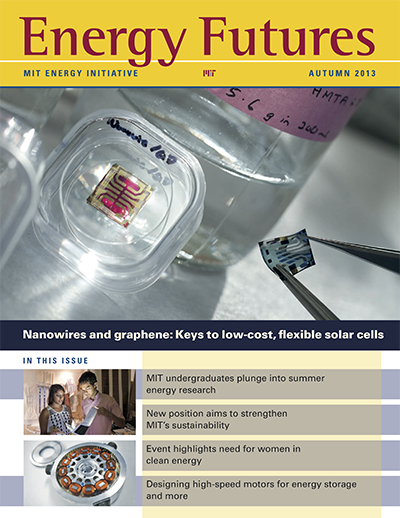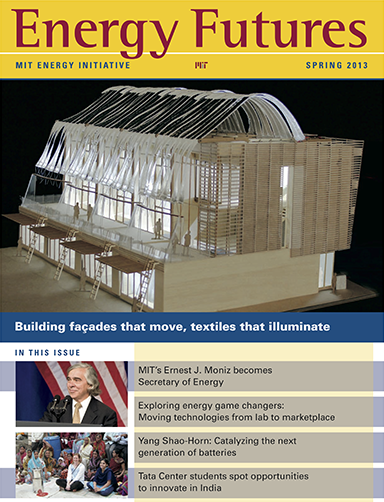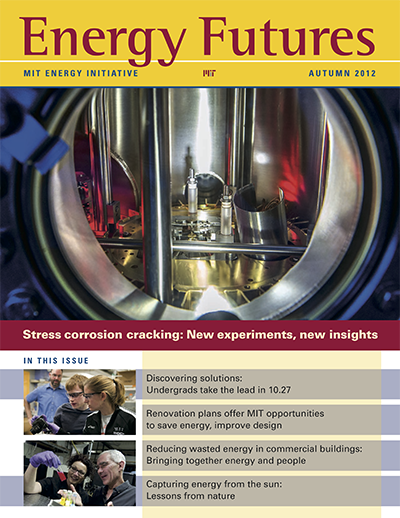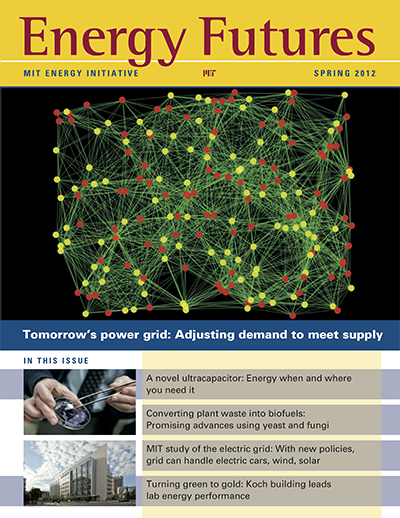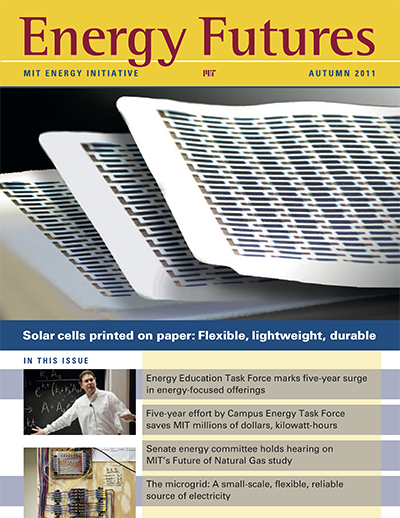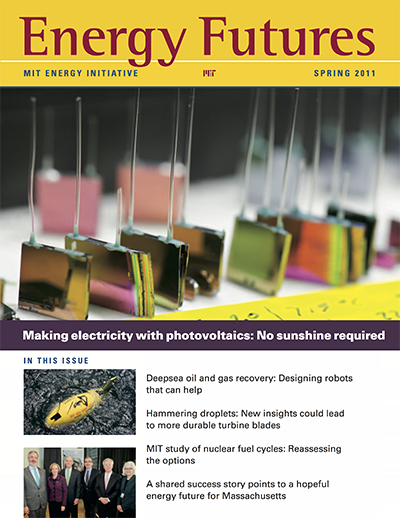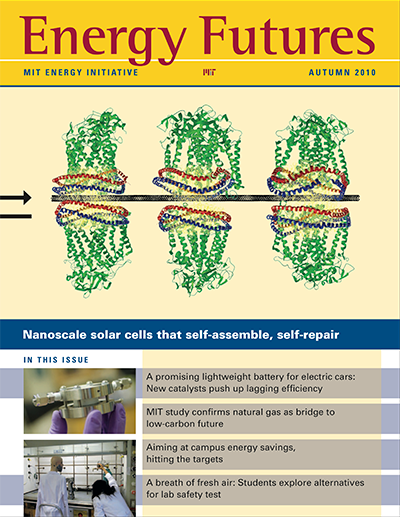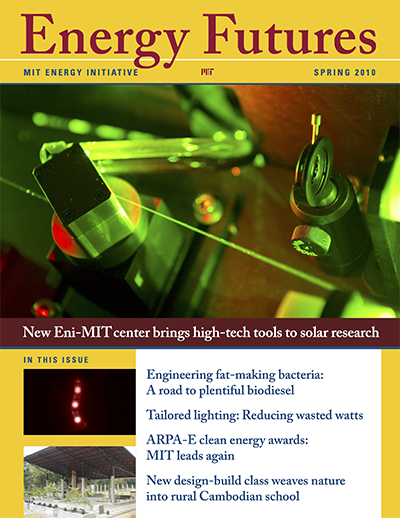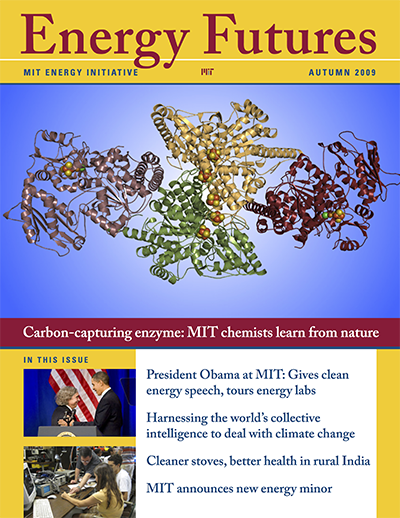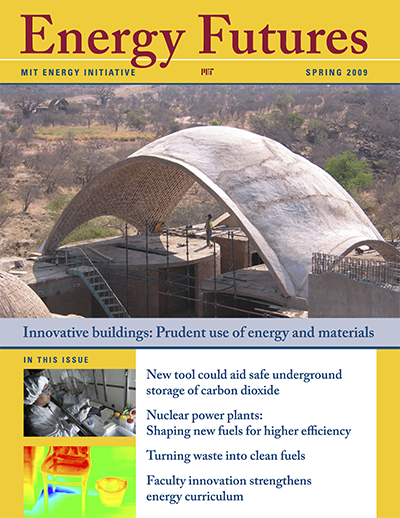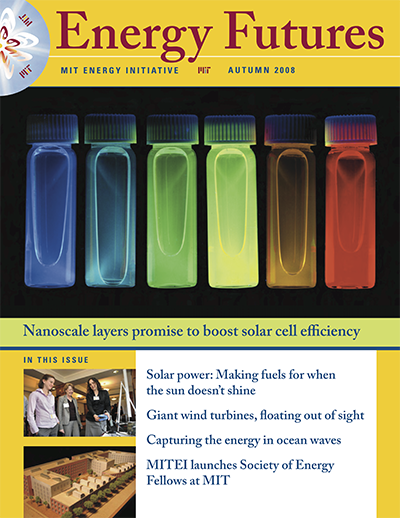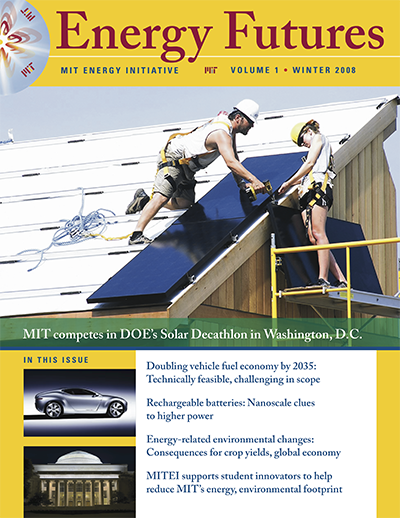Letter from the director
Dear friends,
As I write, there have been significant changes in how we work and interact with colleagues across MIT and around the world as we attempt to slow the spread of Covid-19 and keep our communities safe. It has been heartening to see the MIT community’s camaraderie in action as we figure out how to work, teach, and learn remotely and to temporarily adjust our research activities. Our daily operations may look different, but MITEI remains committed to developing the solutions that will decarbonize our global energy systems and address climate change.
Within this issue, you will meet some of the passionate individuals working with us to accelerate this transition. Our cover story introduces you to members of the MITEI research team working on a novel energy assessment tool that can be used to evaluate the carbon footprint of today’s evolving global energy system.
You will also learn about a new methodology that can identify cities with similar profiles to aid urban decision makers seeking role models for new transportation policies, as well as an examination of the impact that decreasing production costs and electricity prices have on the economics of solar generation. You will read about a device that can capture carbon dioxide not only from various exhaust streams, but also from ambient air. The researchers have started a company, Verdox, Inc., that will develop a pilot plant within a few years.
It is imperative that we develop scalable solutions if we are to make meaningful progress on the climate crisis. Like Verdox, many startup companies that were conceptualized at MIT are working on promising technologies for widespread deployment. Swift Solar, a startup with roots at MITEI, makes lightweight, highly efficient, and affordable solar panels that have the potential to greatly increase the use of solar power as an energy source. Another startup, Khethworks, which launched out of the Tata Center, has developed a solar- powered water pump to increase the crop irrigation period in India. After years of work, the company founders are ready to scale up deployment, enabling more farmers and villages to benefit from this life-changing device.
Many of our energy students have gone on to successful energy-based careers after graduation. We highlight two: Abigail Ostriker, who completed MITEI’s Energy Studies Minor and is now pursuing her PhD in economics while studying issues related to climate resilience; and Addison Stark, whose graduate work with MITEI led him to a career in energy policy. MIT students are also inspired to pursue clean energy careers by classes such as Jing Li’s energy economics course, which gives students a look into real-life electricity market scenarios.
MIT has now hosted four of the six planned Climate Action Symposia, a series that brings together our community with researchers, policymakers, and industry leaders to share the current state of climate science and policy and to generate new ideas and solutions to address the urgent challenge of climate change. You will read about the fourth symposium, which looked beyond the electricity sector to address other areas of our economy that contribute greenhouse gas emissions, including transportation, industry, and agriculture.
I would like to thank former U.S. Secretary of State George P. Shultz for his 12 years of service as MITEI’s inaugural External Advisory Board chairman. While he is stepping down from this role, he continues to serve on our board and remains an influential figure in the fight against climate change—notably with his recent leadership in developing an ambitious bipartisan climate plan that would introduce a progressive carbon price to halve U.S. carbon emissions from 2005 levels by 2035. We welcome clean energy advocate Norman Augustine, retired chairman and CEO of Lockheed Martin Corporation, as our External Advisory Board’s incoming chairman.
Thank you, as always, for reading Energy Futures and for joining us in our efforts to achieve a low-carbon future. We at MITEI wish you and your loved ones health and safety during this difficult time.
Warm regards,

Professor Robert C. Armstrong
MITEI Director






